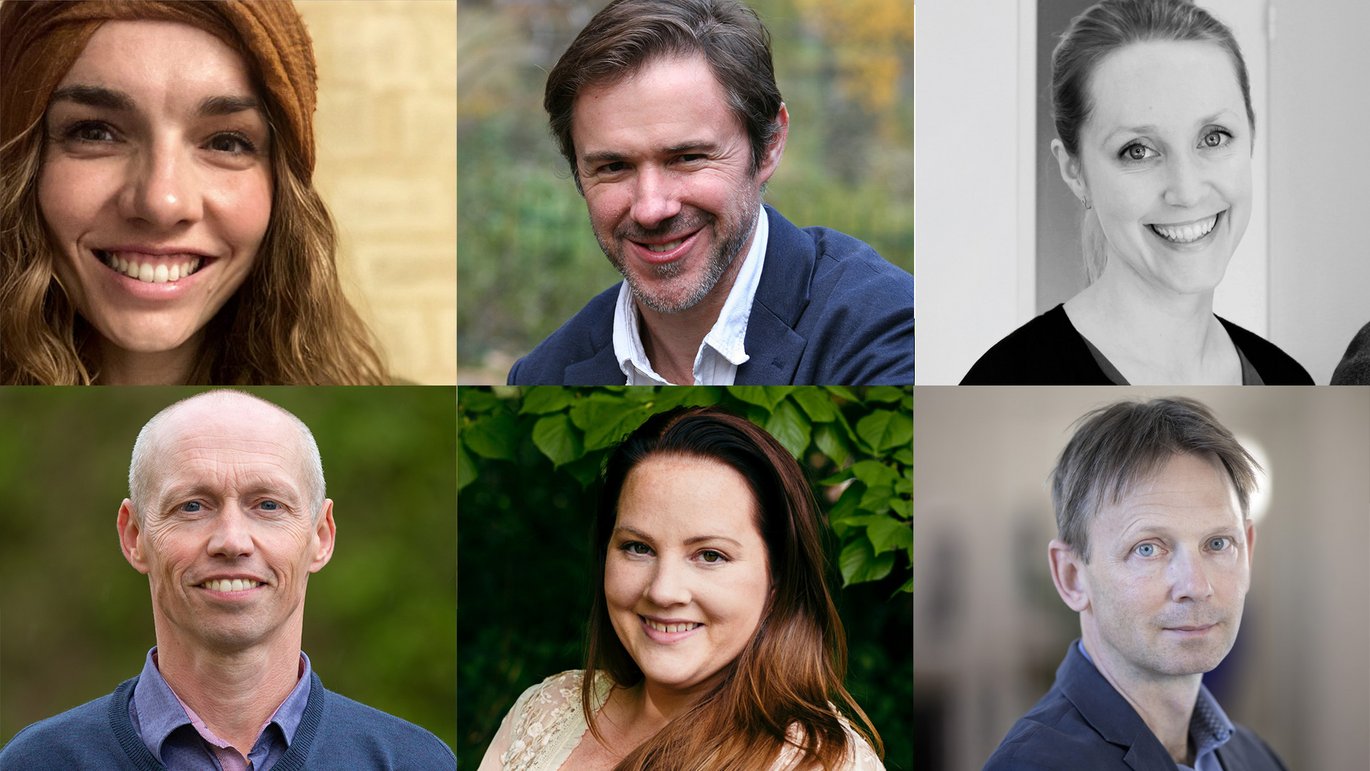Eight research projects at Health receive funding from the Carlsberg Foundation
The Carlsberg Foundation supports new Danish research projects, which in the coming years will lead to new fundamental insights and discoveries. In total, eight researchers at Health receive funding from the pool.

How stable is Greenland's ice sheet, and how does it move? Can we learn from the salamander's ability to regenerate after injuries? And how does the human brain support interaction through music and language?
These are just a few of the questions that a new round of funding for basic research aims to help answer.
Here are Health’s grant recipients from the pool:
Associate Professor Emma Börgeson from the Department of Biomedicine receives a Semper Ardens: Accelerate grant of DKK 7,000,000 for the project: 'Deciphering Lipoxin Signaling Mechanisms and Their Role in Modulating Lymphatic Inflammation.'
In the project, Emma Börgeson investigates how substances from the lipoxin family, especially lipoxin B4, can help the lymphatic system reduce inflammation in the body's adipose tissue. The goal is to understand how the body resolves inflammation and how this can affect the development of chronic diseases.
Professor Søren Riis Paludan from the Department of Biomedicine receives a Research Infrastructure grant of DKK 2,534,744 for the project: 'Real-time quantitative imaging of cells for research in immunology, virology, genetics, and beyond.'
The project aims to strengthen cell biology research with the Incucyte SX5, an imaging system that enables real-time observations of cellular responses, focusing on infections, immunity, genetics, and cancer.
Postdoc Mette Mørup Schlütter from the Department of Public Health receives an Internationalisation Fellowship of DKK 1,100,000 for the project: 'Push: Pushing Anthropological Inquiry through Pregnancy, Birth, and Motherhood in Kalaallit Nunaat.'
In the project, Mette Mørup Schlütter examines pregnancy, childbirth, and motherhood in Kalaallit Nunaat by combining local conditions, unique experiences, and Indigenous knowledge systems. The aim is to improve care and well-being for women, their families, and communities, as well as to challenge traditional anthropological approaches.
Postdoc Anita Dittrich from the Department of Clinical Medicine receives an Internationalisation Fellowship of DKK 1,020,000 for the project: 'Endowing Cardiac Regenerative Capacity to Mammalian Cells Via the ECM of Regenerating Salamanders.'
Anita Dittrich investigates differences in the heart's extracellular matrix between pigs, which form permanent scar tissue after injury, and salamanders, which can regenerate completely. By analyzing how cells react to matrix from salamander hearts, the goal is to understand whether regenerative abilities can be influenced by the properties of the matrix.
Professor Peter Keller from the Department of Clinical Medicine and the Center for Music in the Brain receives a Research Infrastructure grant of DKK 2,495,140 for the project: 'Cognitive and Social Neuroscience (CoSoN) Electroencephalography (EEG) Lab.'
In the project, he investigates how brain processes scale from individuals to groups to support social cognition and communication. Using an advanced imaging system, Peter Keller seeks answers to how the brain supports interaction through music and language.
Professor Morten Schallburg Nielsen from the Department of Biomedicine receives a Research Infrastructure grant of DKK 1,770,448 for the project: 'AxioScan 7 Slide Scanner.'
The project focuses on improving the ability to visualize tissue and understand biological mechanisms and diseases using advanced imaging. With a new, high-tech slide scanner, Morten Schallburg Nielsen gains access to more detailed tissue analyses.
Support for Basic Research
In addition to the mentioned projects, the following Health researchers have received smaller grants from the same pool:
- Associate Professor Donna Bødtkjer from the Department of Biomedicine receives a monograph fellowship of DKK 896,000 for the project: 'Thomas Bartholin's discovery of the human lymphatic vasculature.'
- Professor Thomas Corydon from the Department of Biomedicine receives a Research Infrastructure grant of DKK 499,060 for the project: 'Enhancing Retinal Research and Therapeutics: Acquisition of Diagnosys Celeris ERG for Multidiscipline.'
The information is based on press materials from the Carlsberg Foundation.
Read Health Communication’s guidelines for coverage of news stories on the faculty's website